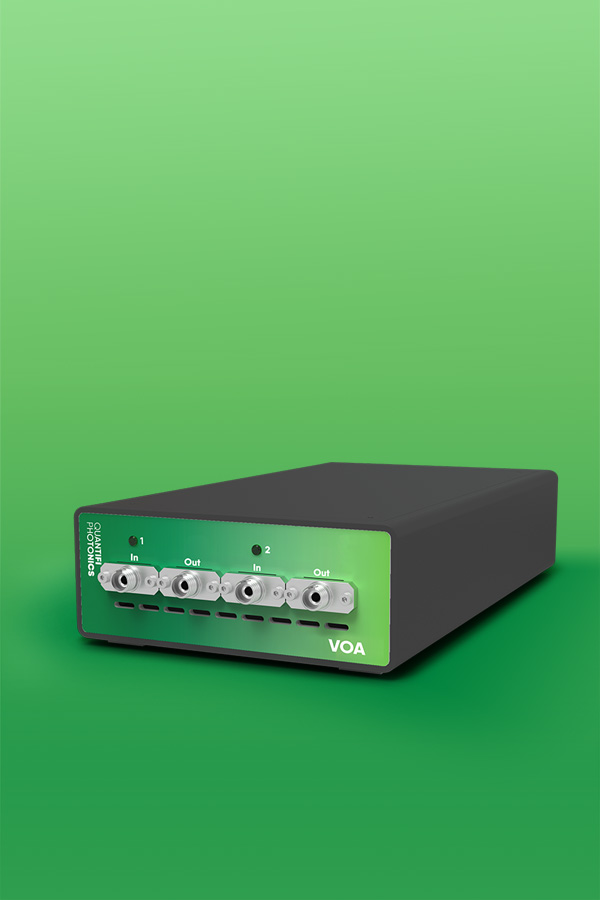Variable Optical Attenuator.
Available in MATRIQ and PXI platforms

VOA 1000 / 1100 / 1300 Series
The VOA MATRIQ Series is a MEMS-based variable optical attenuator with fast attenuation speed, low insertion loss and in-built power meter. Its advanced power stabilization function lets you set and maintain the output power stability even when the input power fluctuates.
It is available in singlemode, multimode and polarization maintaining fibre types and various wavelengths to suit a wide range of applications.
With a stackable, space-saving design and intuitive software controls make it a valued addition to the optical lab or test bench.
Wide coverage of operational wavelengths
One versatile tool to cover a wide variety of applications.
Fast attenuation speed
Fast attenuation speed minimizes the down time during changes in attenuation settings to shorten your overall test time.
Built in power monitoring capability
Eliminate the need for an extra power meter with built-in power monitoring capability.
SM, PM and Multimode options
Available in your choice of fiber types to fit into your existing optical setup.
Constant power output mode
With the built-in closed-loop power monitoring, the VOA can operate in the constant power output mode to stabilize fluctuating input power.
Low insertion loss
Maximize your power budget with low insertion loss.
Simple, intuitive operation with CohesionUI™
CohesionUI makes it simple to control the VOA from your PC or mobile device. Its cutting edge design offers a sleek modern interface, cross device compatibility, customizable views and remote network access.
- Transceiver stress testing
- Receiver sensitivity testing
- Loss simulation
- Optical power budget analysis
- Instrument power calibration
- EDFA gain linearity test
Relative Intensity Noise (RIN) Measurement
Semiconductor laser Relative Intensity Noise (RIN) is an important parameter that can cause significant degradation to the performance of fiber optic communication links. It is important for both laser manufacturers and systems designers to understand how RIN is measured to ensure reliable, accurate and repeatable results.
Relative Intensity Noise (RIN) MeasurementPhotonic Doppler Velocimetry (PDV)
The velocity measurement of fast-moving materials is essential to several areas of scientific and technical investigations, and new applications will continue to be found.
Photonic Doppler Velocimetry (PDV)






